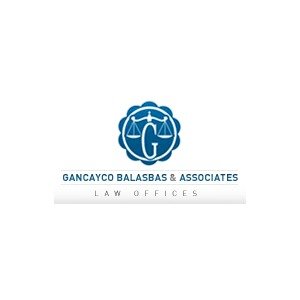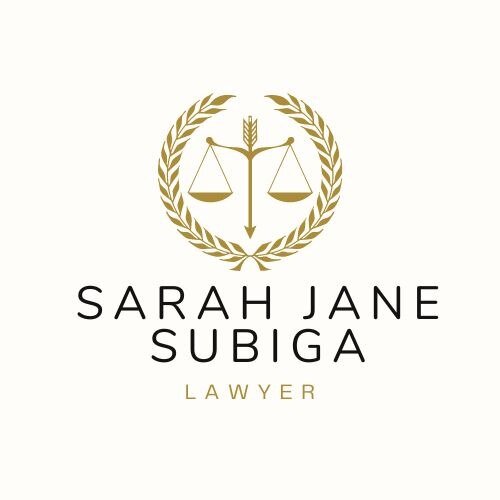Best Creditor Lawyers in Manila
Share your needs with us, get contacted by law firms.
Free. Takes 2 min.
List of the best lawyers in Manila, Philippines
About Creditor Law in Manila, Philippines:
Creditor law in Manila, Philippines pertains to the rules and regulations that govern the relationship between a creditor and a debtor. It involves the rights and obligations of both parties with respect to loans and debts, as well as the legal processes involved in the collection of debts.
Why You May Need a Lawyer:
There are several situations where seeking legal help in the field of creditor law may be necessary:
- If you are a creditor and need assistance in drafting loan agreements or any legal documents related to lending money.
- If you are a debtor and have been sued by a creditor for non-payment or default on a debt.
- If you suspect that a creditor is engaging in unfair or illegal debt collection practices.
- If you need guidance on bankruptcy laws and how they may affect your rights as a creditor or debtor.
Local Laws Overview:
The following key aspects of local laws are particularly relevant to creditor law in Manila, Philippines:
- The Civil Code of the Philippines governs most aspects of creditor and debtor relationships.
- The Philippines has specific laws, such as the Retail Trade Liberalization Act, that regulate certain types of loans or credit extended to businesses.
- The country also has consumer protection laws, like the Consumer Act of the Philippines, which safeguard debtors against unfair practices by creditors.
- There are legal processes, such as filing a collection case in court or applying for bankruptcy, that must be followed to enforce creditor rights or seek debt relief.
Frequently Asked Questions:
1. Can a creditor sue me for non-payment?
Yes, if you fail to repay a debt as agreed, a creditor can sue you for non-payment. It is important to address the issue promptly and seek legal advice to understand your rights and potential consequences.
2. What can I do if a creditor is harassing me?
If a creditor is engaging in harassment or unfair debt collection practices, you can file a complaint with the appropriate authorities, such as the National Privacy Commission or the Bangko Sentral ng Pilipinas. Consult with a lawyer to guide you through the process.
3. Can a creditor garnish my wages?
Yes, under certain conditions, a creditor can obtain a court order to garnish your wages to satisfy a debt. However, there are legal limits on the amount that can be deducted from your wages. Seek legal advice to understand your rights in such situations.
4. What are my rights as a debtor in the Philippines?
As a debtor, you have rights protected by law, such as the right to be treated fairly and respectfully by creditors, the right to dispute inaccurate or unfair debt collection practices, and the right to seek debt relief through legal processes, like bankruptcy. Consult with a lawyer to understand your specific rights and options.
5. How can I file for bankruptcy as a debtor?
Filing for bankruptcy as a debtor in the Philippines involves a legal process. Consult with a lawyer who specializes in bankruptcy law to guide you through the necessary steps, including gathering documentation, filing the petition, and attending court hearings.
Additional Resources:
For further information and assistance in the field of creditor law in Manila, Philippines, consider reaching out to the following resources:
- Integrated Bar of the Philippines - a voluntary organization of lawyers that can provide referrals to experienced creditor law attorneys.
- Bangko Sentral ng Pilipinas - the central bank of the Philippines that regulates lending institutions and can provide information on consumer protection.
Next Steps:
If you need legal assistance in creditor matters, consider taking the following steps:
- Gather all relevant documents and details pertaining to your situation, such as loan agreements, payment receipts, or correspondence with the creditor.
- Consult with a lawyer who specializes in creditor law to assess your rights, obligations, and potential legal remedies.
- Follow the advice and guidance provided by the lawyer to protect your interests and navigate the legal processes effectively.
Lawzana helps you find the best lawyers and law firms in Manila through a curated and pre-screened list of qualified legal professionals. Our platform offers rankings and detailed profiles of attorneys and law firms, allowing you to compare based on practice areas, including Creditor, experience, and client feedback.
Each profile includes a description of the firm's areas of practice, client reviews, team members and partners, year of establishment, spoken languages, office locations, contact information, social media presence, and any published articles or resources. Most firms on our platform speak English and are experienced in both local and international legal matters.
Get a quote from top-rated law firms in Manila, Philippines — quickly, securely, and without unnecessary hassle.
Disclaimer:
The information provided on this page is for general informational purposes only and does not constitute legal advice. While we strive to ensure the accuracy and relevance of the content, legal information may change over time, and interpretations of the law can vary. You should always consult with a qualified legal professional for advice specific to your situation.
We disclaim all liability for actions taken or not taken based on the content of this page. If you believe any information is incorrect or outdated, please contact us, and we will review and update it where appropriate.










